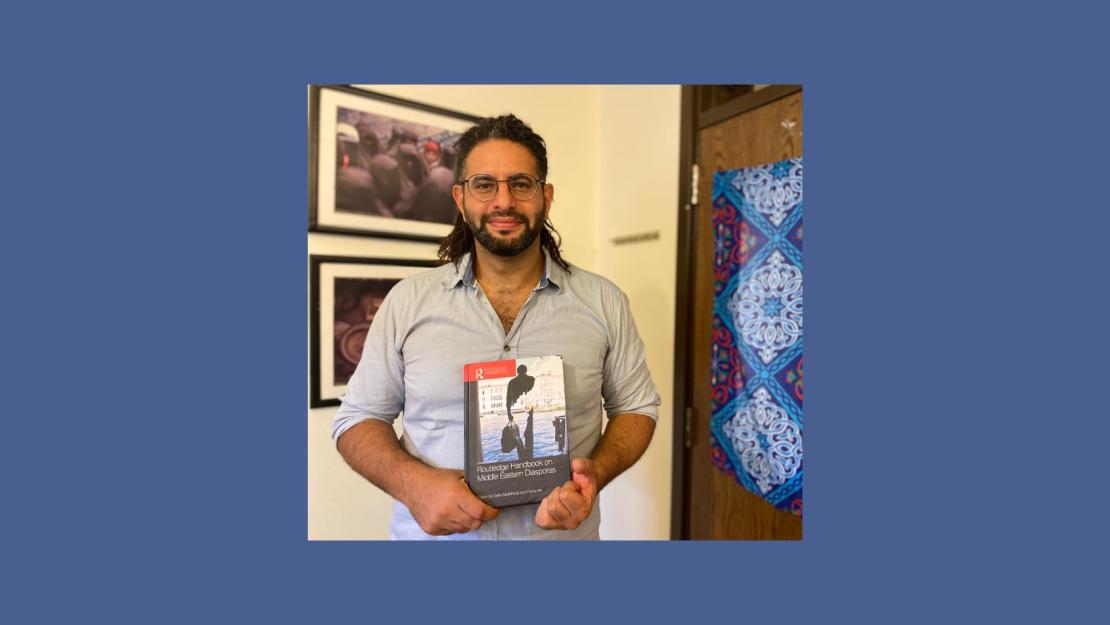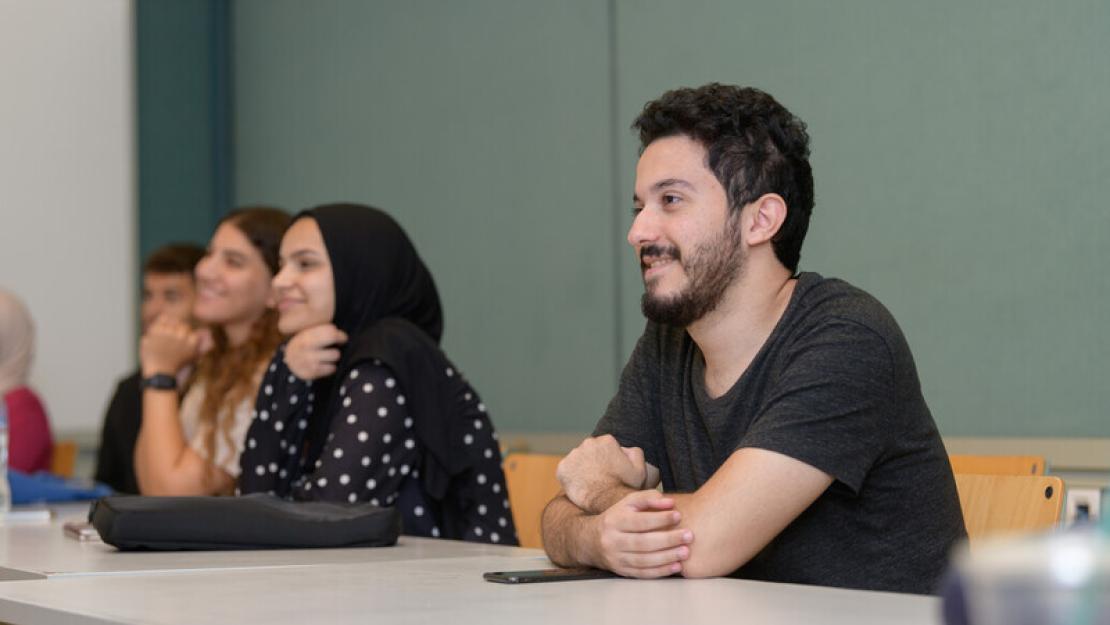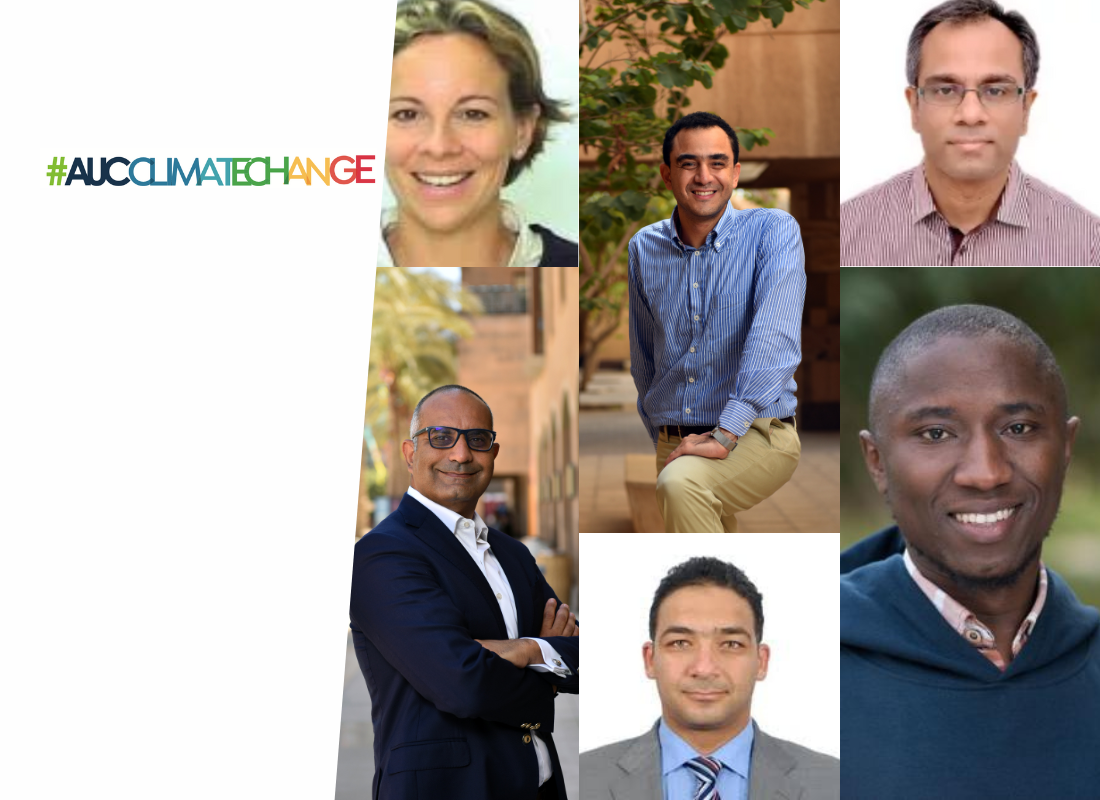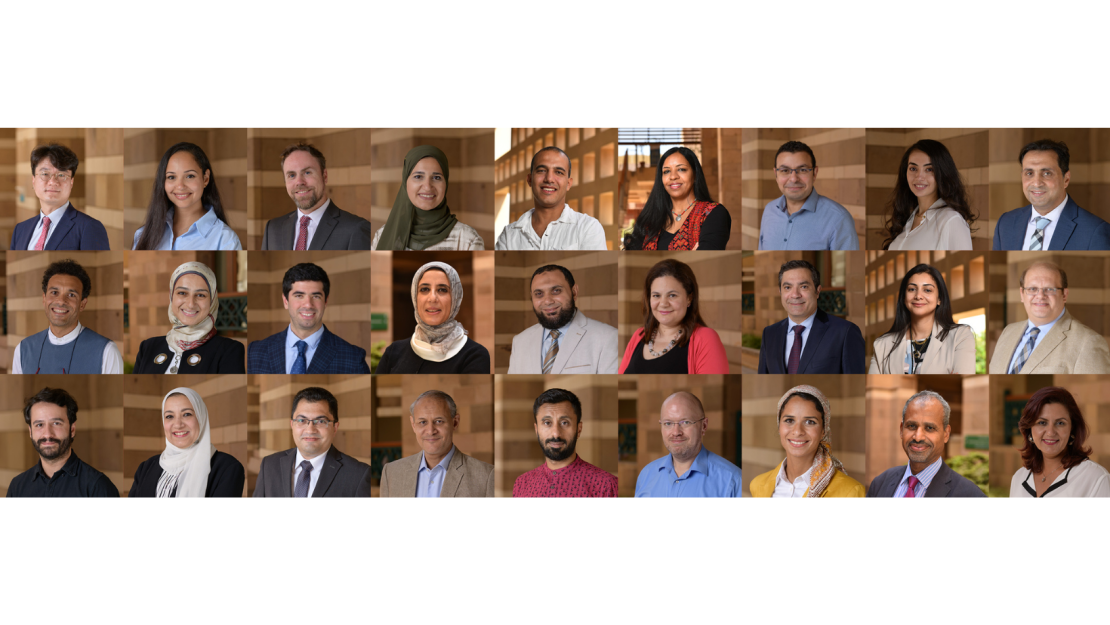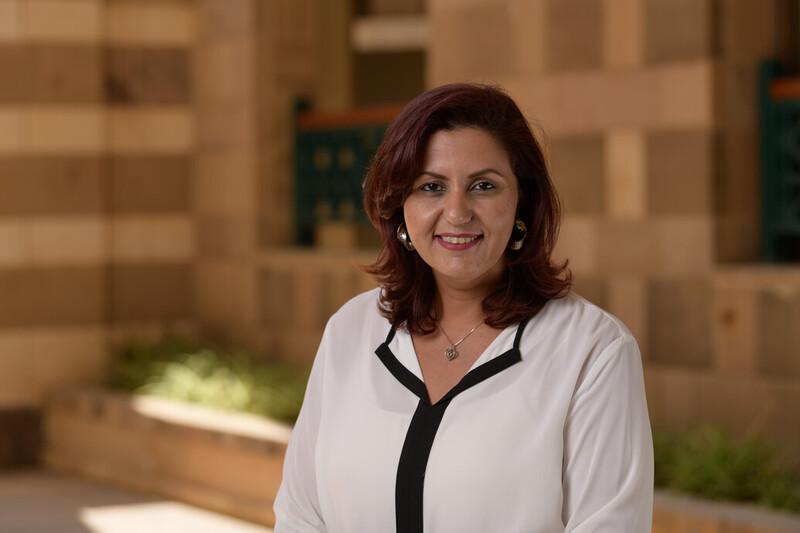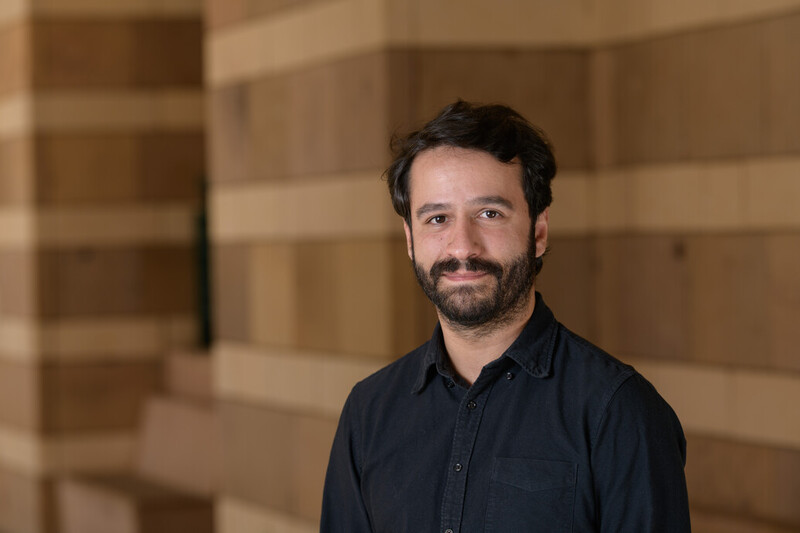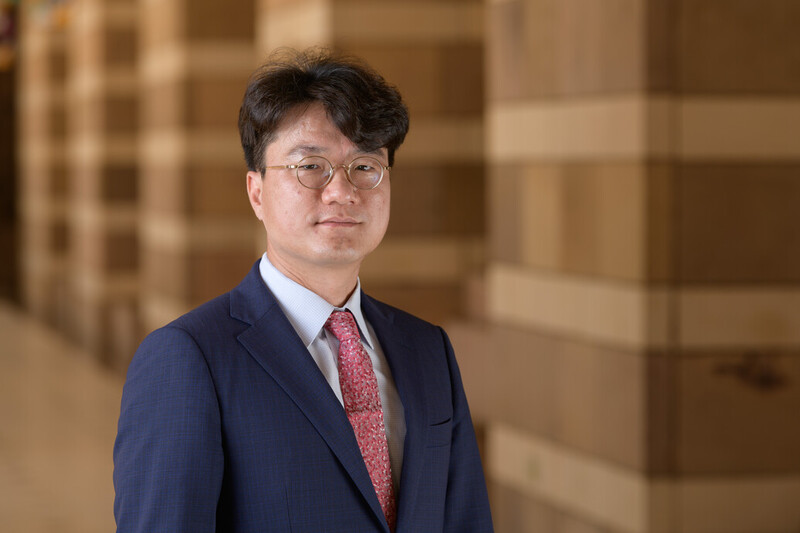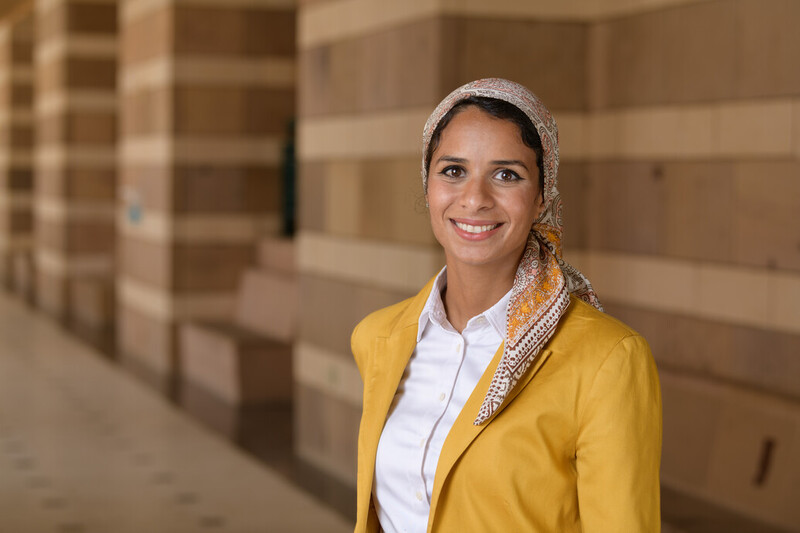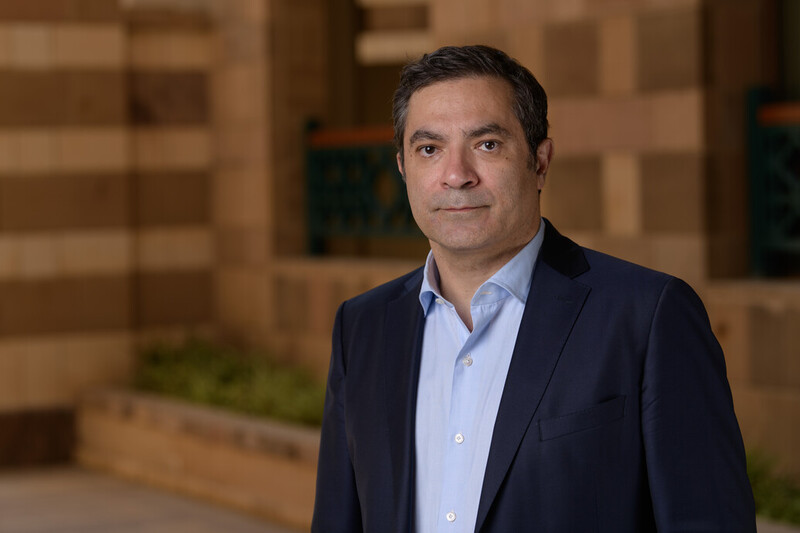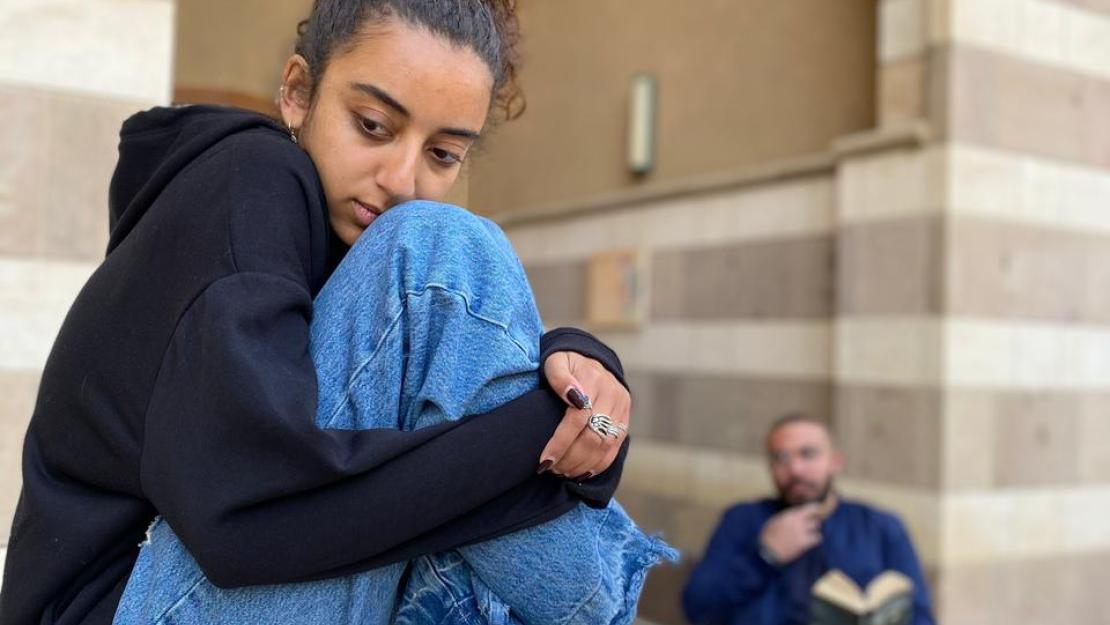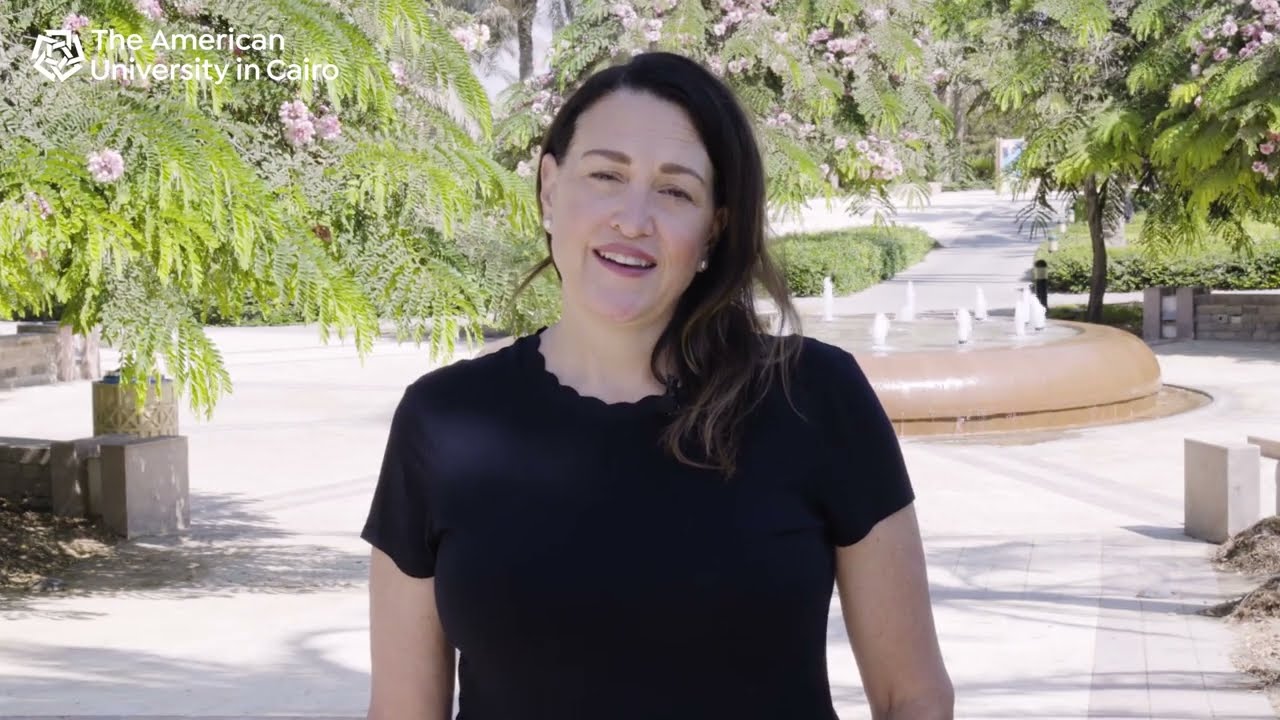From the arts to sciences — and the special places where they meet in between — AUC is offering two restructured majors and four new minors this fall.
Multimedia Communication and Journalism
Formerly offering the separate majors of a Bachelor of Arts in Multimedia Journalism (MMJ) and a Bachelor of Arts in Communication and Media Arts (CMA), AUC’s Department of Journalism and Multimedia Communication is now offering a combined Bachelor of Arts in Multimedia Communication and Journalism (MMCJ).
“We decided to absorb some elements of the CMA discipline into MMJ, forming MMCJ, thereby increasing the credit hours from 48 to 72,” said Firas Al-Atraqchi, professor of practice in AUC’s Department of Journalism and Mass Communication and program director.
Students who declare MMCJ will have the option of choosing one of two specializations — communication or journalism. They will also have the choice of one of two capstone pursuits in tandem with their specialization.
Bachelor of Architecture
Similarly, the Department of Architecture is now offering a Bachelor of Architecture in lieu of the Bachelor of Science in Architectural Engineering. The new program is a candidate for accreditation with the National Architectural Accrediting Board — an endorsement that will open even more opportunities for program graduates.
“Architecture is at a crossroads between human/cultural values and the technical capabilities of construction,” the catalog description reads. “Moreover, digital technology is rapidly growing, changing our ways of communication, expression, perception, thought and interaction.”
Students majoring in architecture will choose from the following three tracks: Human and Environmental Studies, Tectonics and Computational Design or Architecture and Urban Heritage Design.
Bioinformatics Minor
Paving the way into the future, AUC has launched the first bioinformatics academic degree in Egypt. Ahmed Moustafa, professor and chair of the Department of Biology, explained that recent developments in DNA sequencing technologies have resulted in an enormous amount of genetic data.
“To be able to process, analyze and interpret these data, a need for researchers with combined expertise in biological and computational sciences arose — resulting in the birth of the interdisciplinary field of bioinformatics,” Moustafa said.
Many organizations in Egypt have begun adopting genomics-based approaches across a number of fields, including medicine, agriculture, energy and food. Students who study under this program will be well-equipped to meet the growing demand for bioinformaticians.
“The minor will prepare students to apply data analytics in genomic sciences,” he explained. “Moreover, the students will gain practical skills and experience that allows them to answer questions such as which genetic mutation and/or microbe is associated with a certain disease, which coronavirus variant is dominant in a specific area at a certain point in time or what genetic modification can be applied to improve the production of a certain crop.”
Game Design Minor
Also created as a response to changing job market demands, the new minor in Game Design is overseen by Ahmad Saqfalhait, associate professor of practice and associate chair of the Department of Arts. A collaboration between the Graphic Design Program and the Department of Computer Sciences and Engineering, the program is a response to an industry that has surpassed “three of the biggest entertainment-related industries: music, film and sports, combined,” Saqfalhait said.
He added: “In addition to its economical value, game applications have expanded and evolved to cover various needs, from educational and social to medical and psychological — all playing on our need to have fun and engage.”
With the region lacking representation in this field, according to Saqfalhait, training students in this field will allow them to harness gaming to share their own narratives.
The multidisciplinary minor is open to all AUC students. After finishing the minor, some students will have the opportunity to intern at local game development studios or join an AUC team working on self-initiated game projects in collaboration with external organizations.
Visual Arts Minor
For those wishing to unlock their artistic side, the Department of the Arts is now offering a Visual Arts Minor. Also open to all students, the program will touch on art foundations, painting, ceramics, photography and animation, among others, allowing students to create works of art with a variety of tools.
“Students joining from scientific disciplines, for example, will be able to produce their science-based projects as creative art productions,” said Shady Elnoshokaty, visual arts program director and associate professor of practice in the Department of the Arts. “This is the contemporary concept of arts and art education today.”
Those minoring in Visual Arts can pursue careers as painters, sculptures or illustrators, as well as find work in art galleries and cultural institutions. Moreover, others can find their way as fashion designers, creative directors in cinema, art decorators or exhibition designers.
Islamic History Minor
Finally, the Islamic History minor is the result of a comprehensive rework of a previous minor in Classical/Medieval Middle East History.
“The courses in this program will prepare students to consider the Islamic past with more nuance and with a variety of analytical skills,” said Amina Elbendary, associate professor and director of graduate studies in the Department of Arab and Islamic Civilizations, stressing the program’s importance for anyone interested in the Middle East and Islam today.
She continued: “In order to understand the two, we need to develop more sophisticated ideas about how Islam came to be the way it is,” she said. “This minor is a program that helps students develop the skills necessary to do that."
Revised to include a broader selection of courses that span multiple levels, “the idea is that a student could begin with an introductory course, such as Survey of Arab History, in their freshman or sophomore year and then proceed to take more intermediate and advanced-level courses," Elbendary explained.
Students who choose this path will gain a firm foundation in the evolution of Islamic history across time. The course examines history through the prisms of politics, society, and culture while emphasizing current scholarship in each of those three fields.
Explore all of AUC’s course offerings here.


